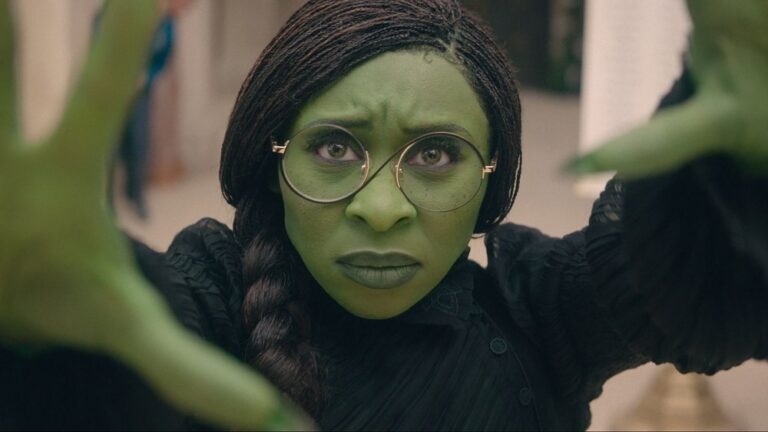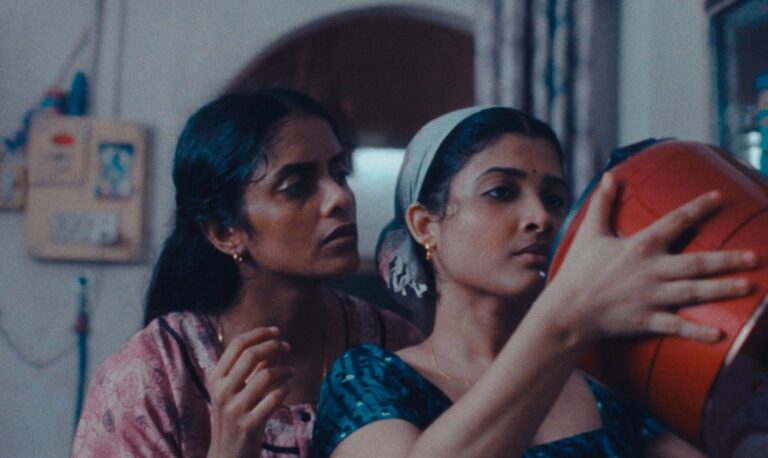Several years ago, the OFCS produced a weekly essay question that would give our members the opportunity to answer various questions about film, film criticism and personal opinions about the medium. This week, we’re restarting that feature.
Essay Question #1: What one film most inspired you to go into film criticism and why?
Question Submitted by: Wesley Lovell @ Cinema Sight
Responses
William Bibbiani @ CraveOnline
When I was a teenager and just learning about the art form of movies, I once did some work for a family friend in exchange for an expensive college textbook: A Short History of the Movies (Sixth Edition). It was the first properly scholarly tome I had ever read on the subject, and I read it cover to cover over a weekend. And I was surprised to find that amidst all the expected analysis of Citizen Kane and Persona and Seven Samurai, there was also a solid two pages dedicated to John Carpenter’s They Live.
They Live was a film I had seen a dozen times already but had, I suddenly learned, never really thought about before. The themes were obvious but the cinematic implementation to bring them about – like filming in Panavision and placing key information throughout the frame, so Carpenter’s indictment of television couldn’t be shown properly in network-demanded pan & scan – were a revelation. It became crashingly clear that the mainstream cinema I had absorbed my whole life without very much consideration was actually rife for study, and that every film – big, small, entertaining and demanding – was worthy of equal artistic analysis.
So I dedicated my life to that.
Edwin Davies @ A Mighty Fine Blog
Back in 2006, a friend of mine, who happened to be the editor of the University newspaper, asked me if I would mind writing a review of an upcoming release since no one on the paper could cover it that week and he knew that I loved films. I agreed without asking what the film was, partly because I was happy to do someone a favour, and partly because I was excited about seeing my name in print.
The film was David Lynch’s Inland Empire, and it blew me away. I knew that 300 words was not going to be enough to get across the range of emotions such a dark, beautiful and terrifying experience produced in me, so after writing the review I wrote a long blog post about the film and the effect it had on me. That was the first step in wanting to become someone who wrote about cinema in a serious way.
Jeremy Kibler @ The Artful Critic
I always go back to “Jaws” and “Halloween.” For this question, I’ll stick with “Halloween” because I am such a horror enthusiast, and to me, John Carpenter’s 1978 masterpiece is the golden standard of the genre. To this day, that opening POV shot alone is instilled in my brain, as a young Michael Myers stalks his older sister outside his own house and then grabs a big kitchen knife, only to use it on her in her upstairs bedroom. The film itself makes me wish other representatives of the genre were as fresh, as simple, and as exciting as “Halloween,” so ambiguous in the antagonist’s motivation and yet so much more frightening with that approach. Carpenter’s synthesizer score is also so matchless, but it must be the reason why I’m so drawn to synth scores in other movies today (“Drive,” “The Guest,” etc.). Every time I watch this film, it makes me so giddy and excited that I found my passionate outlet in film criticism.
Kristen Lopez @ Awards Circuit
It’s an odd choice, but let me explain. I headed up my high school newspaper’s film reviews, but I didn’t always see what was popular with kids my age. When Match Point came out I loved it and wrote a lengthy review praising it. One of the teachers actually came up to me and said she was shocked that a high schooler would go see a Woody Allen film and write a very contemplative review of it. I know most kids would cringe at being praised for being adult, but it gave me the validation I needed to realize I could write and convince people of something. Thanks Woody Allen!
Mike McGranaghan @ The Aisle Seat
For me, it was probably Spike Lee’s “Do the Right Thing,” which I reviewed for my college newspaper. That was the first time a film inspired me to write more deeply, to explore its themes and ideas, rather than just its entertainment value. The process felt good, and convinced me that this was something worth doing a lot more of.
Jana Monji @ Examiner.com and PasadenaArtBeat on WordPress
Under a pseudonym, I wrote a letter about a movie that I hadn’t seen and still don’t expect to see although I had read the book, “Memoirs of a Geisha.” The letter was written to Steven Spielberg who had originally been scheduled to direct the movie version, but, instead, ended up only producing it. My complaint was that we didn’t need another geisha movie, particularly one about a passive woman who accepts her fate. Although the geisha has come to represent Japanese women, they were only a very small percentage of the total female population. The book has also had a court case filed against it for unsavory behavior by the author toward an actual geisha.
In the past and in recent times, there were plenty of brave, strong women, including warriors, in Japan. It is a shame that the man who produced (and directed) “Amistad,” should encourage the continued stereotypes of Japanese women. Even worse, this movie reportedly had little to do with actual Japanese culture. Why is it politically correct to bring forth sympathetic portrayals of black Africans and African Americans, but continue to support stereotypes of Asians and Asian Americans?
Paulo Peralta @ CinEuphoria
Although I have a huge passion on cinema, the one that made me want to write about the films I watched was Stephen Daldry’s The Hours.
Aaron Pinkston @ Battleship Pretension
I initially went to school for broadcast journalism, with the intention of becoming an actor. I didn’t care to study acting because I didn’t think it would be necessary and I wanted a more well-rounded background. I also had some TV and radio experience, so thought journalism would be something I liked would be a good backup. I quickly understood it was way too much work to be a backup, and my first cinema studies class helped me realize that would be a much better path.
The first film in the first film class I took was King Vidor’s epic war drama ‘The Big Parade.’ With a limited film background, I had little interest in war films and had never seen a silent film before. The huge scale and cathartic dramatic twist simply blew me away. I switched my major to Film Studies soon after.
João Pinto @ Portal Cinema
I can’t say I relate to this particular question, because I decided to pursue this area because of my overall passion for films, so I wasn’t seduced by one or more films in particular, but by all of the movie industry in general. So I can say with all honesty that all the movies I had seen thus far had inspired me to write about them.
Jose Solis @ PopMatters
I was 10 when “Scream” came out, and until then I had never been aware of the notion that film criticism could be “fun”. I thought horror movies were silly entertainment and that critics only liked European art flicks, but watching the characters’ knowledge of film history and genre conventions actually save their lives, I became fascinated with how I could apply this in my own life. I started taking notes about every movie I saw, and then found myself revisiting them after they reminded me of something else I’d seen. Before long, my school notebooks had turned into love letters to the films I loved, and explained why is it I loved them. I’ll never not thank Wes Craven for that.



